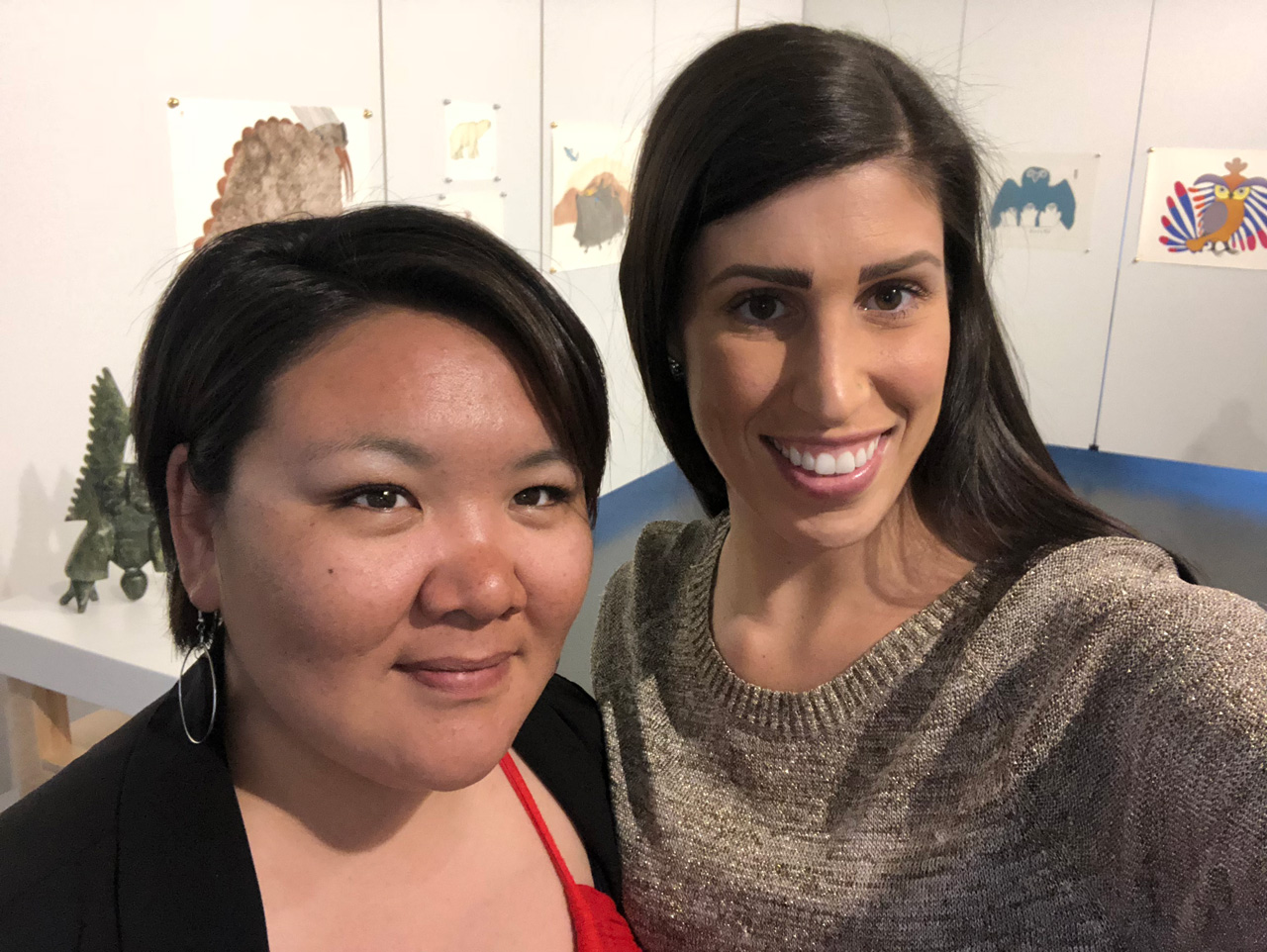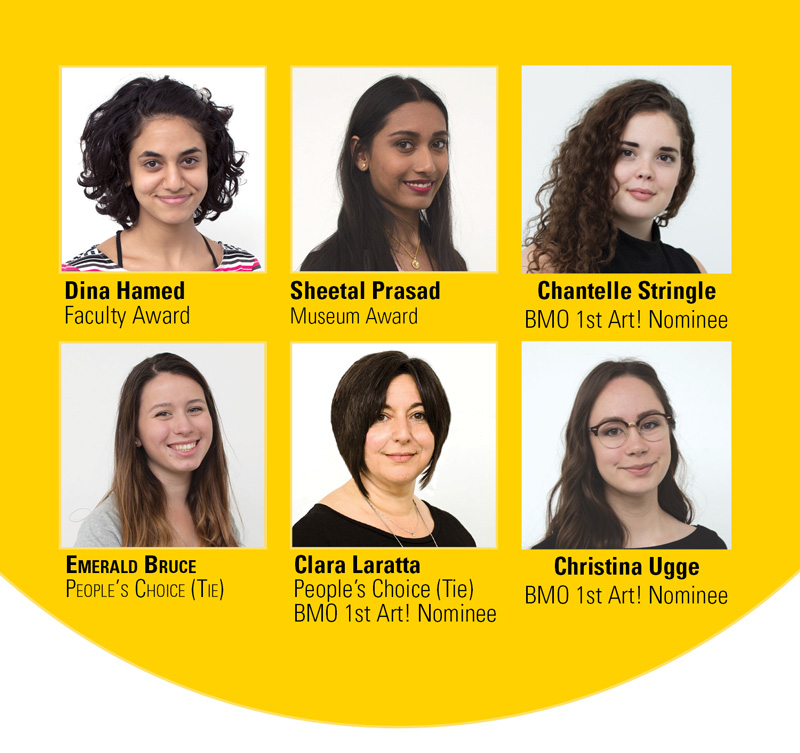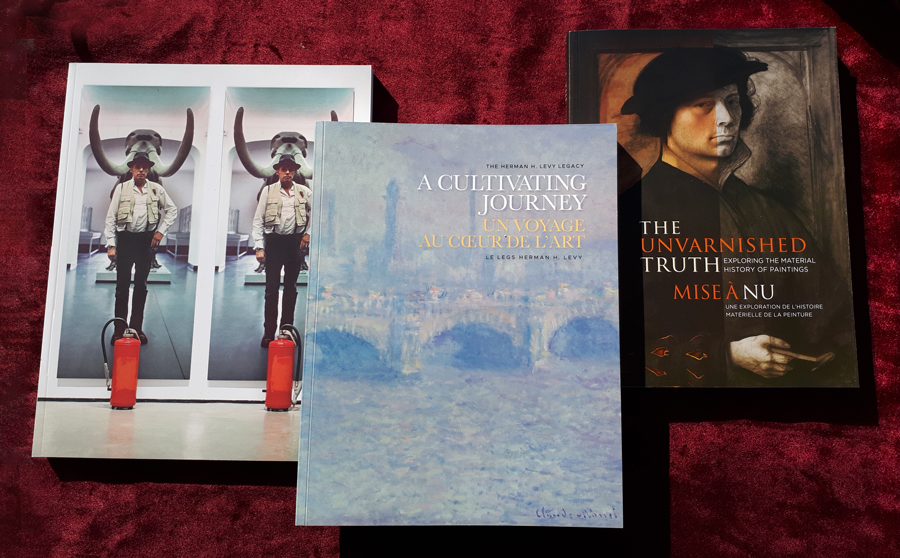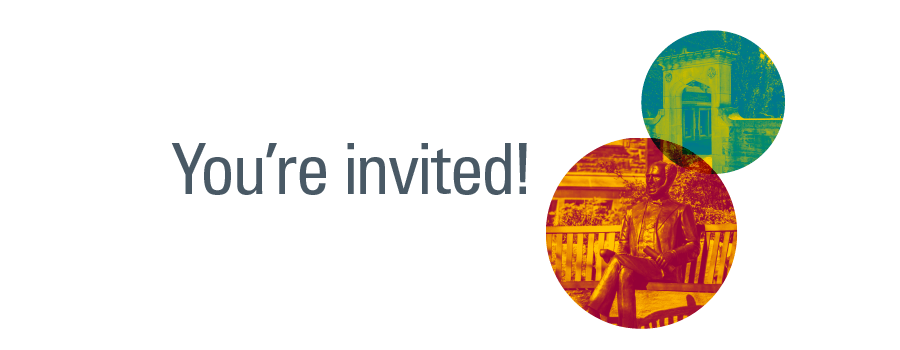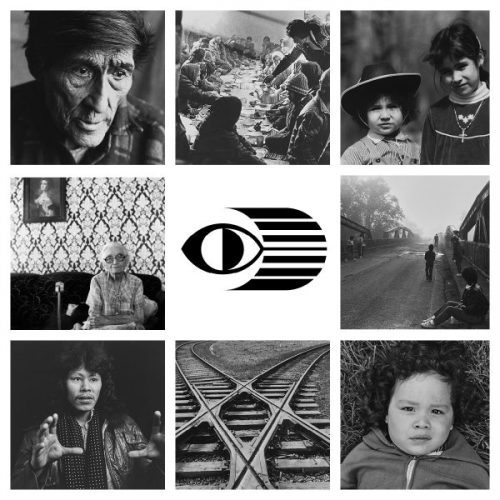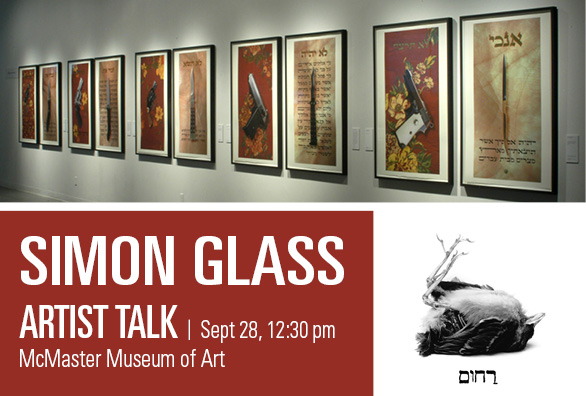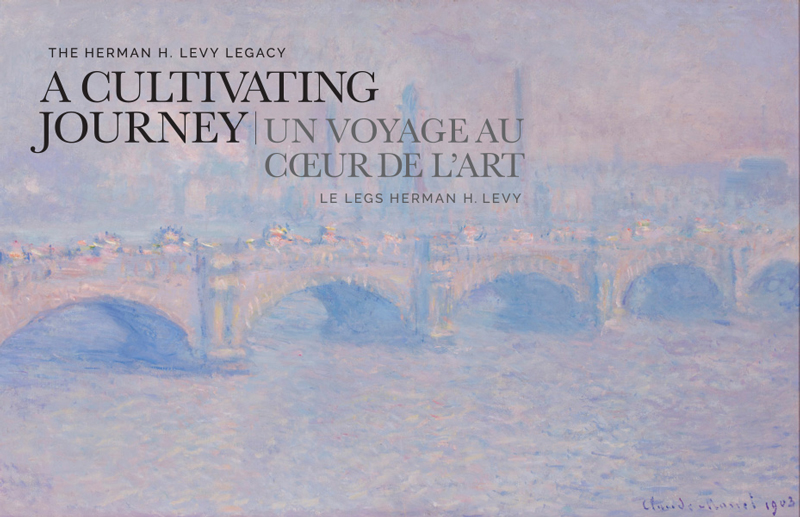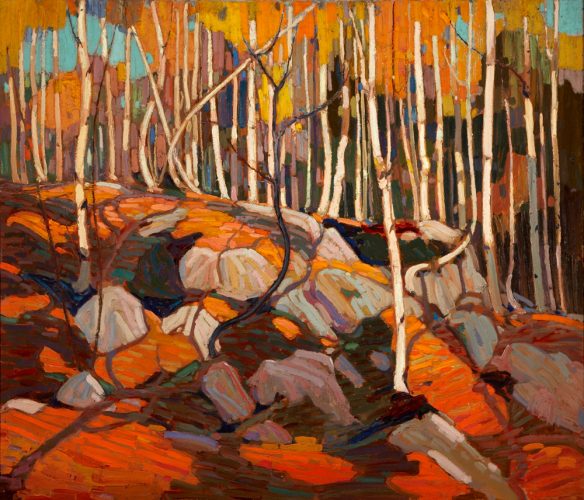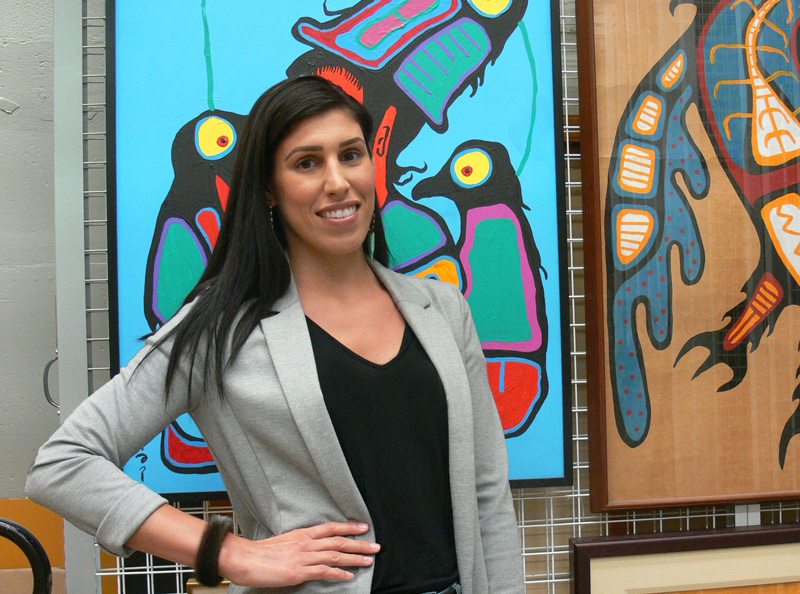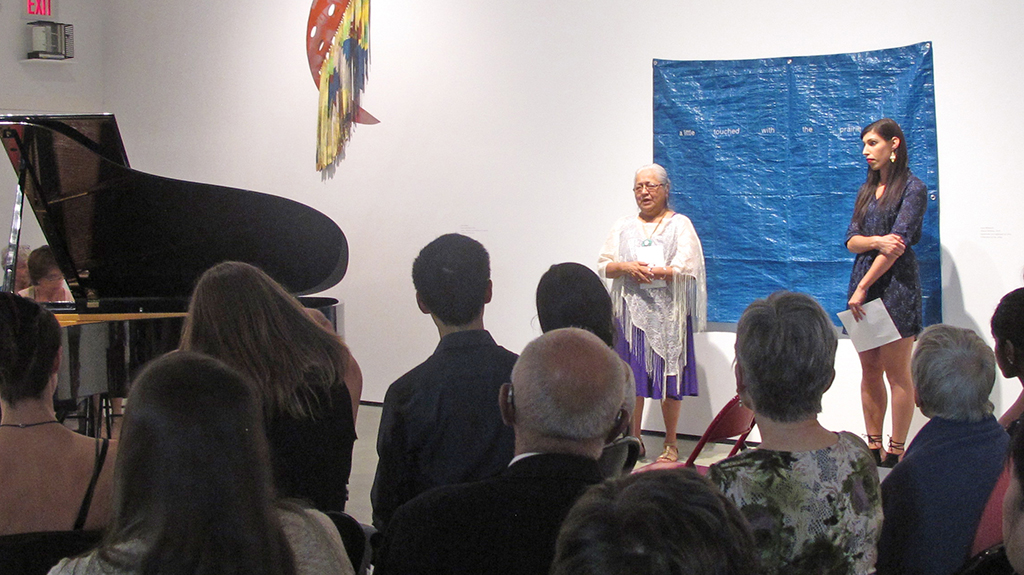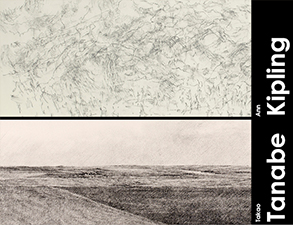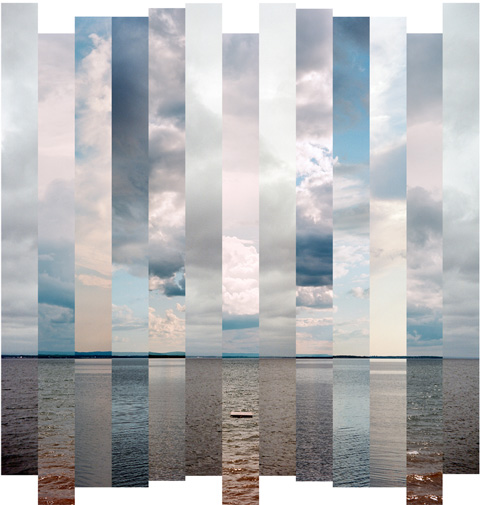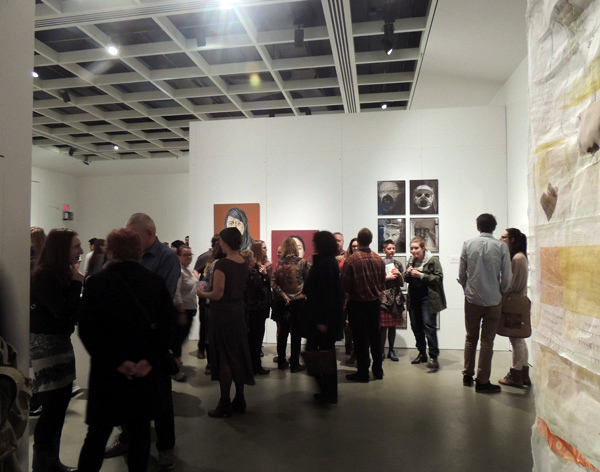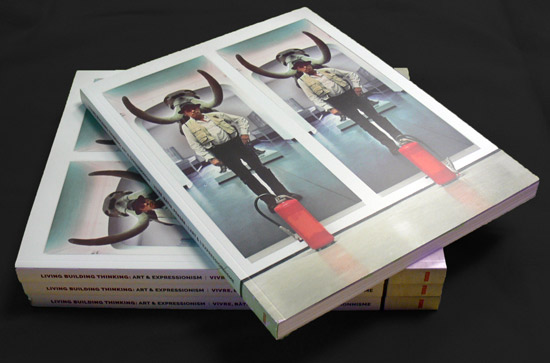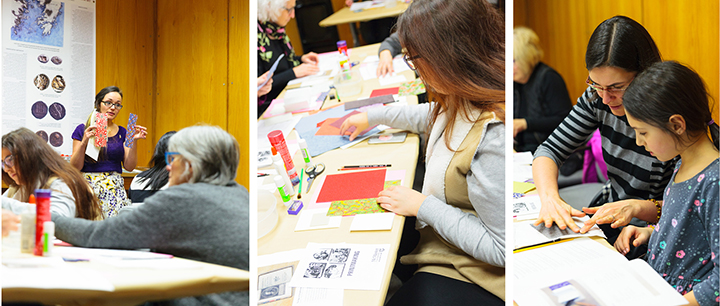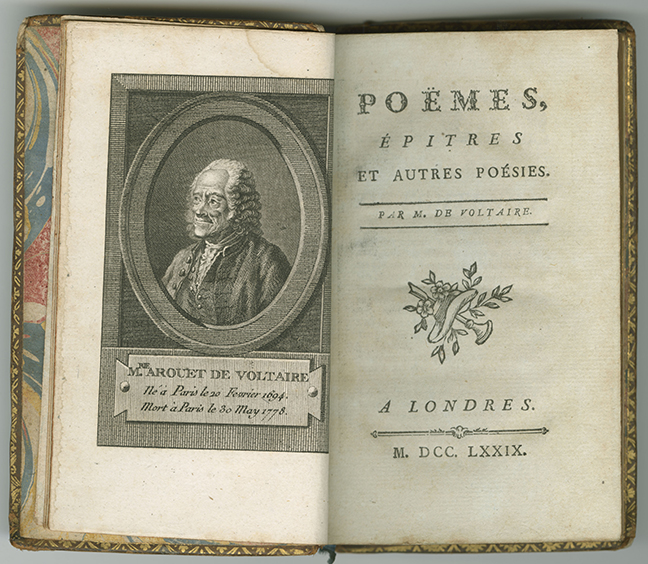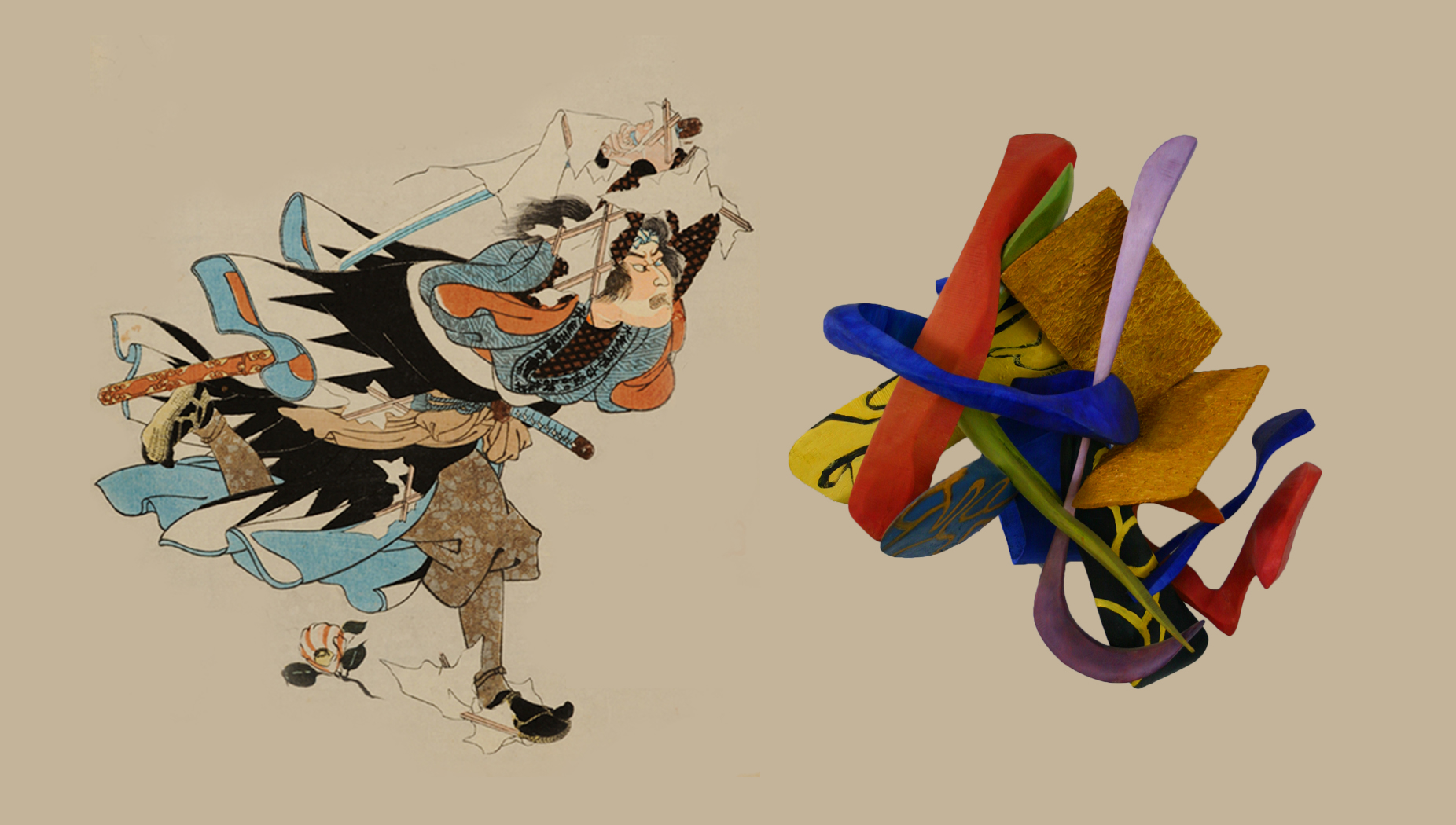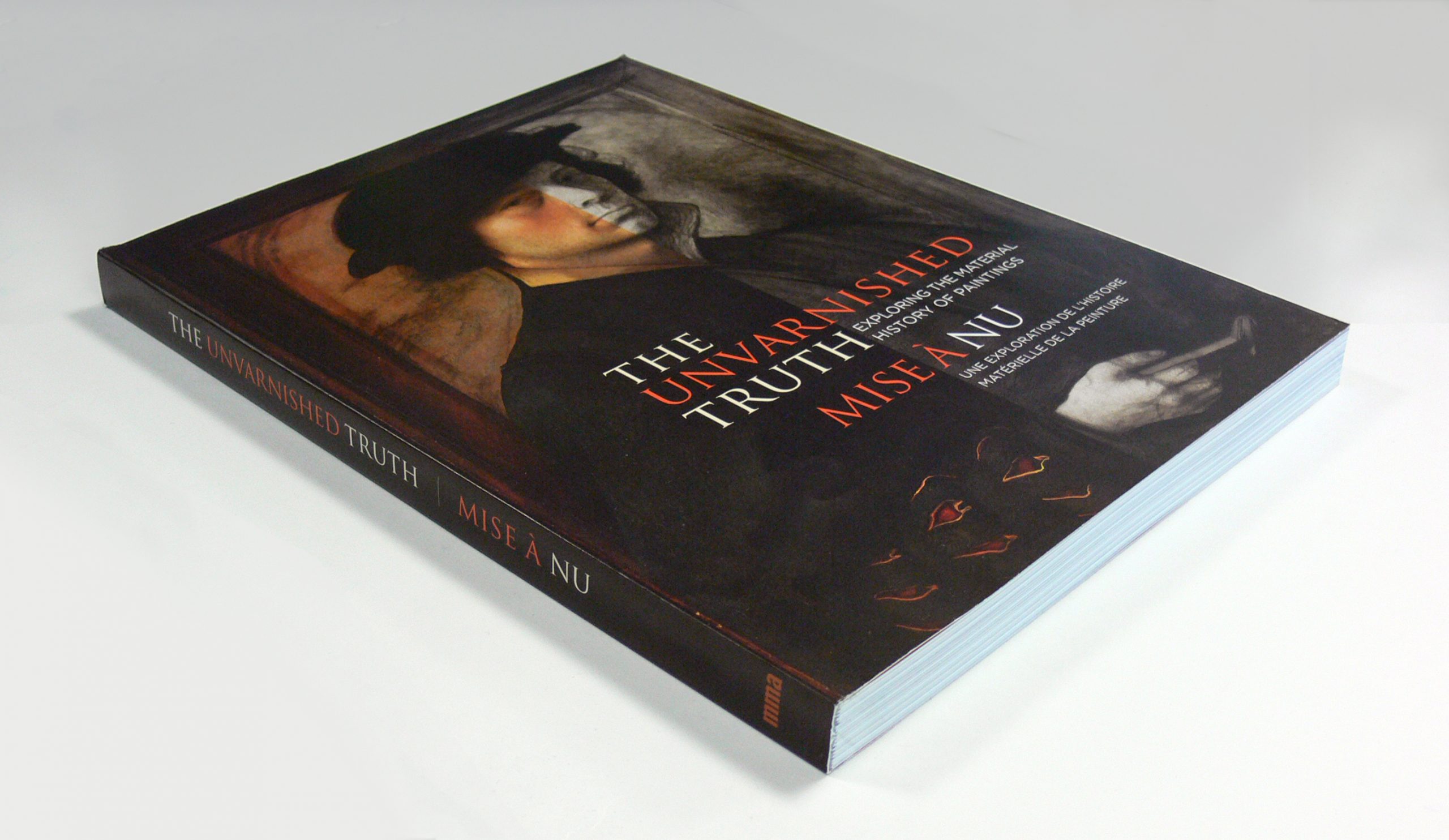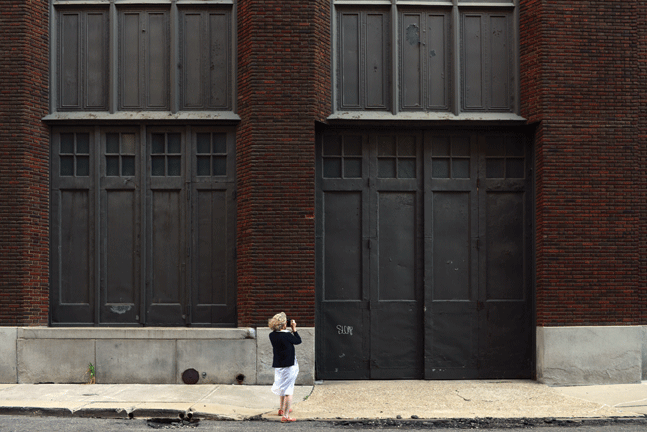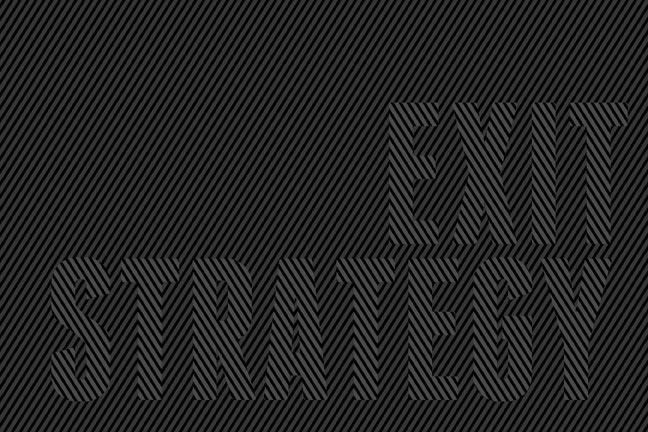Ascending Horizons at McMaster Museum of Art
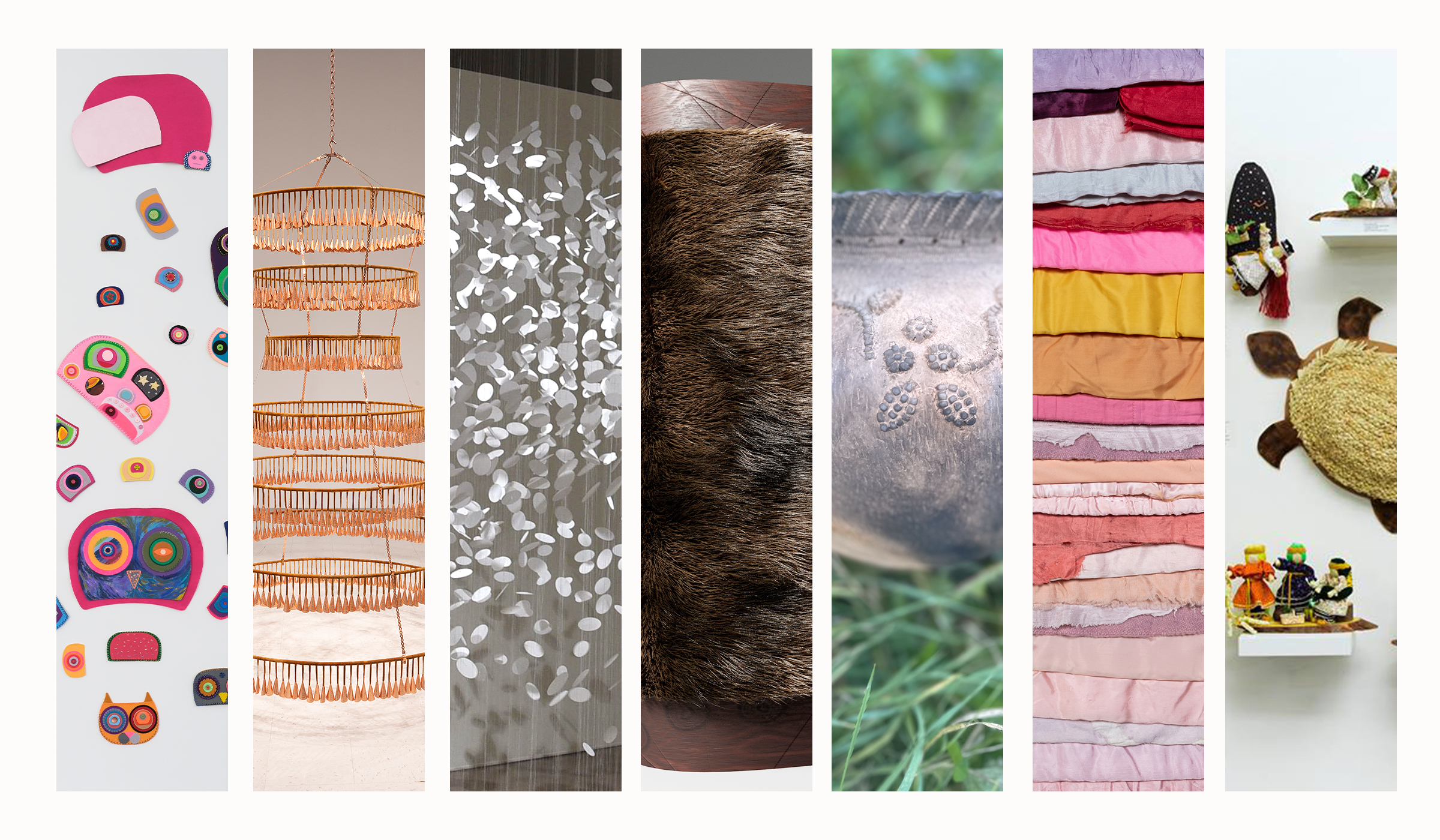


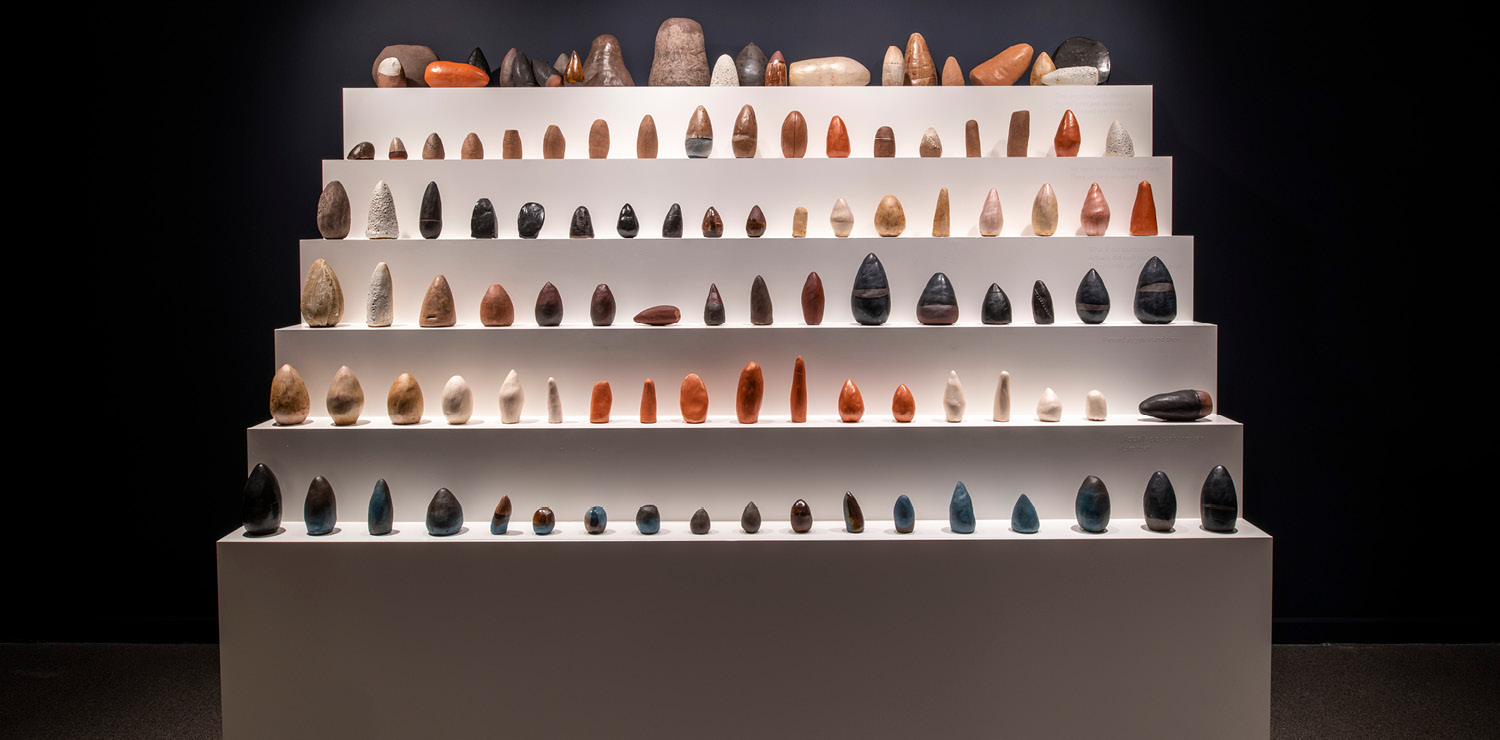


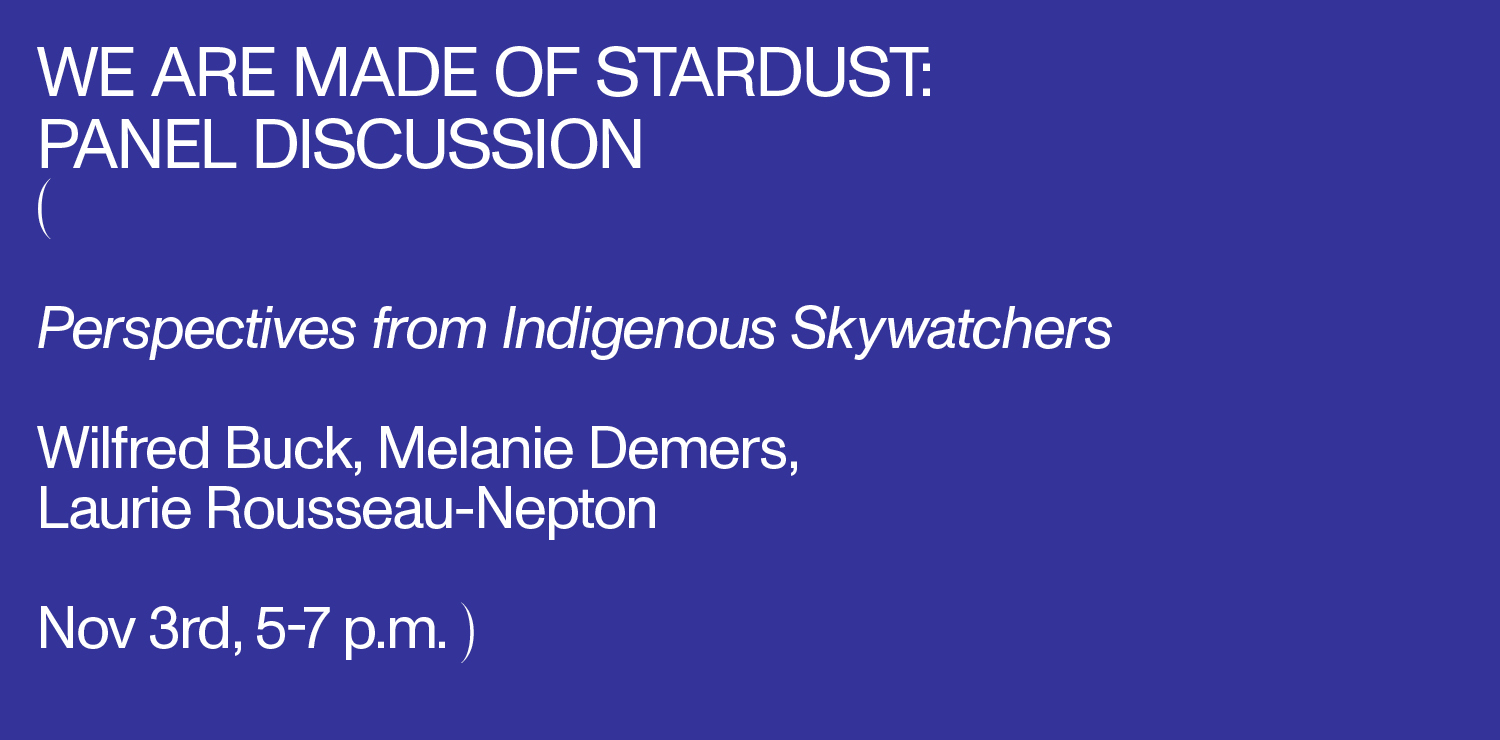
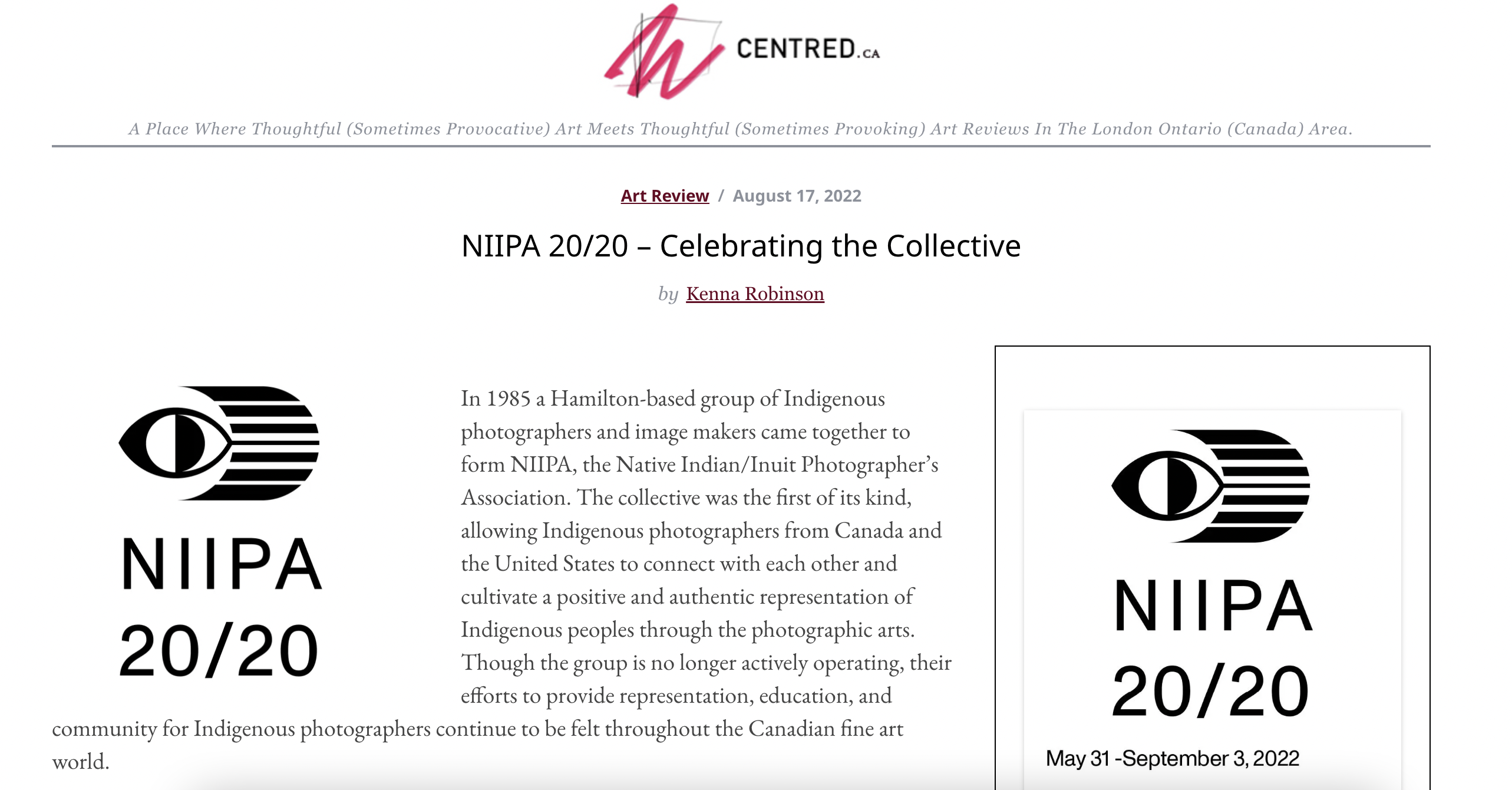
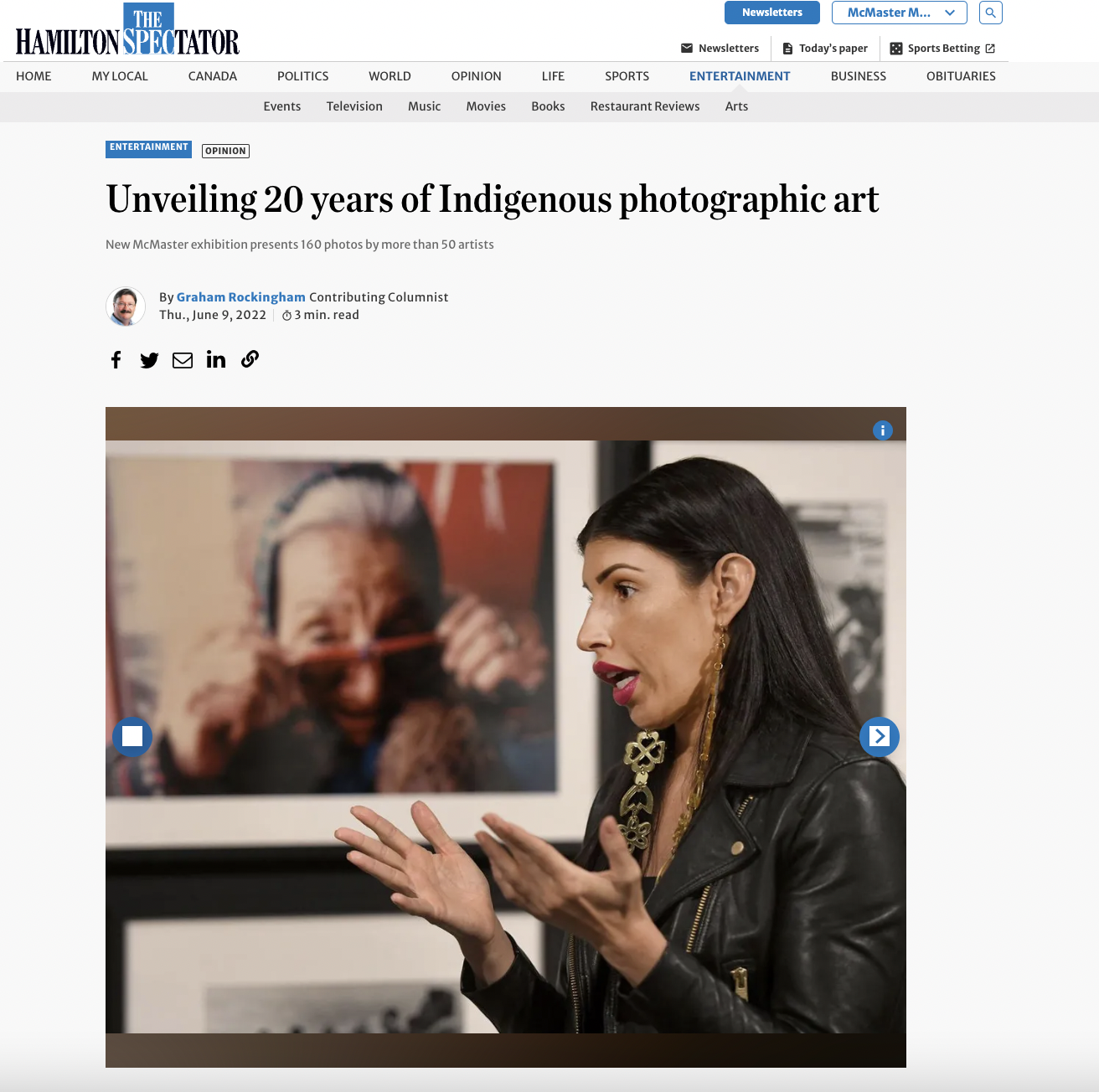
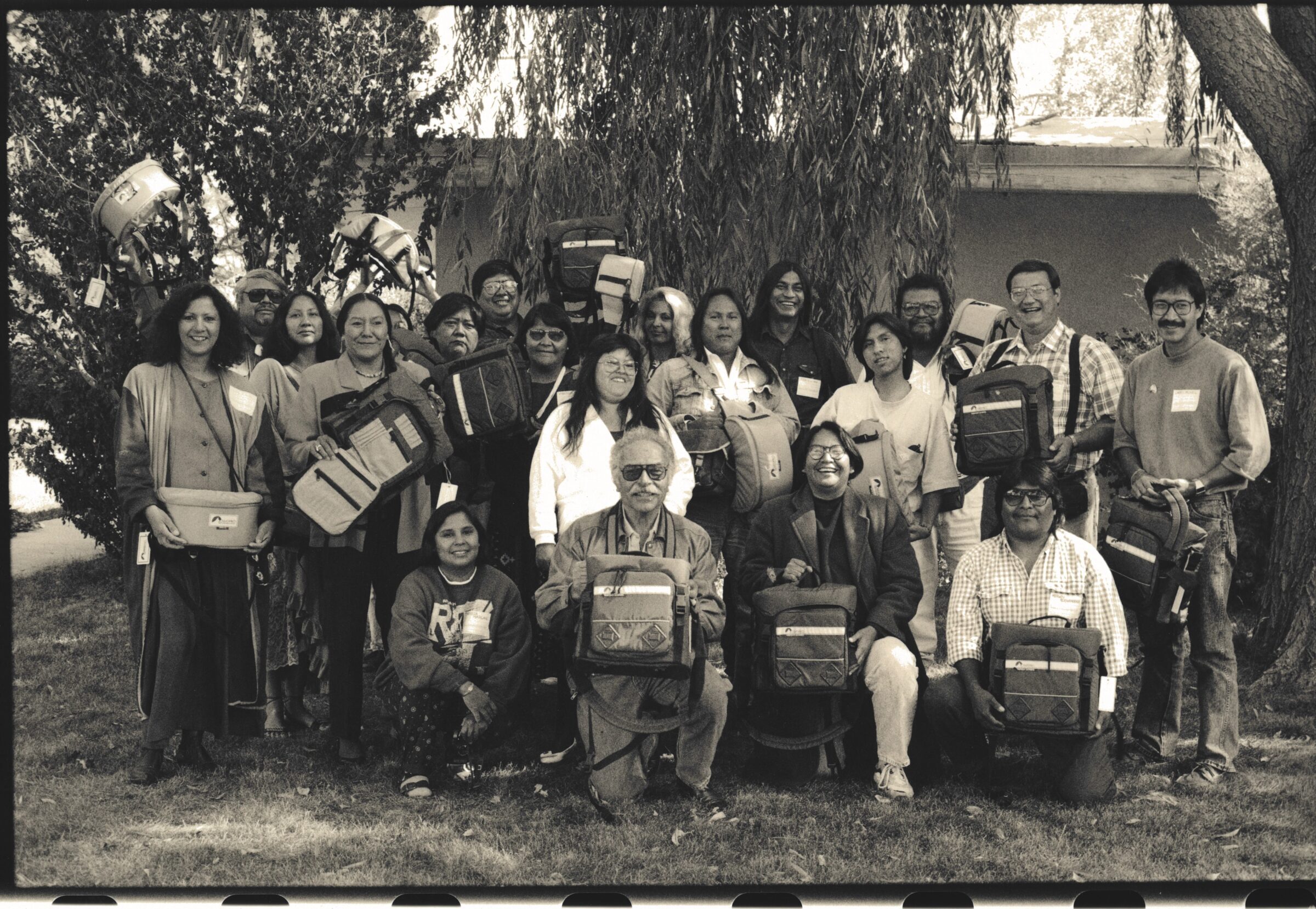
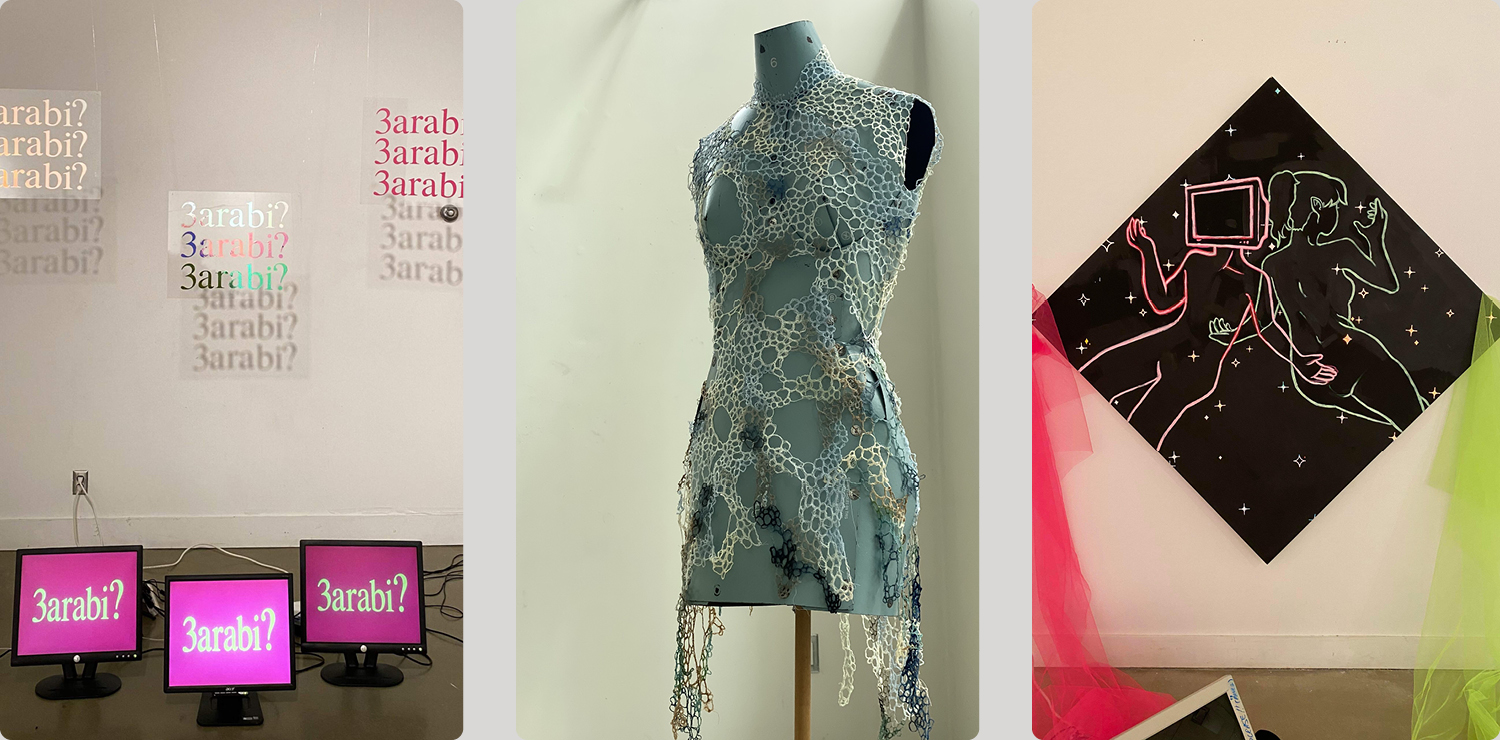
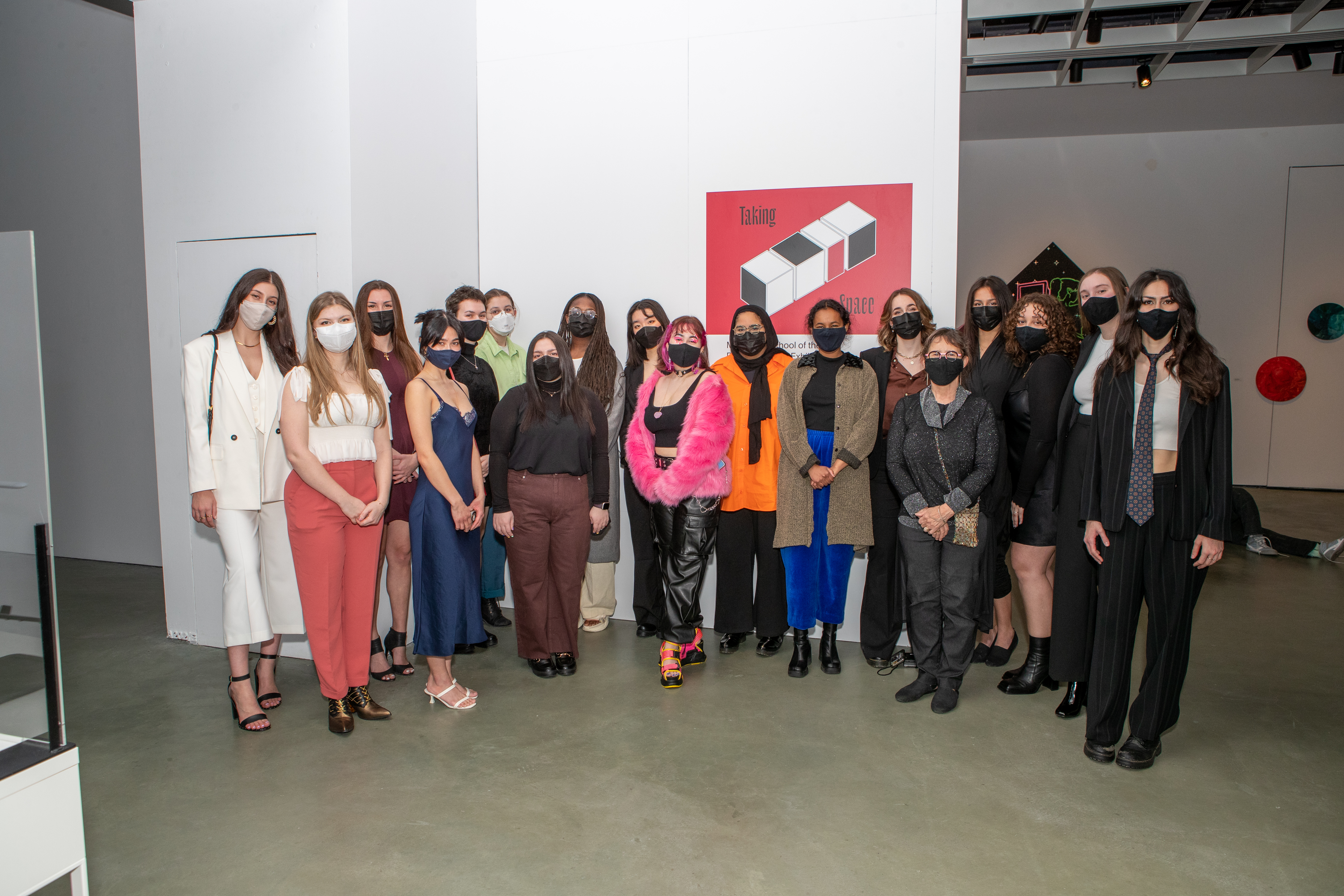
nichola feldman-kiss
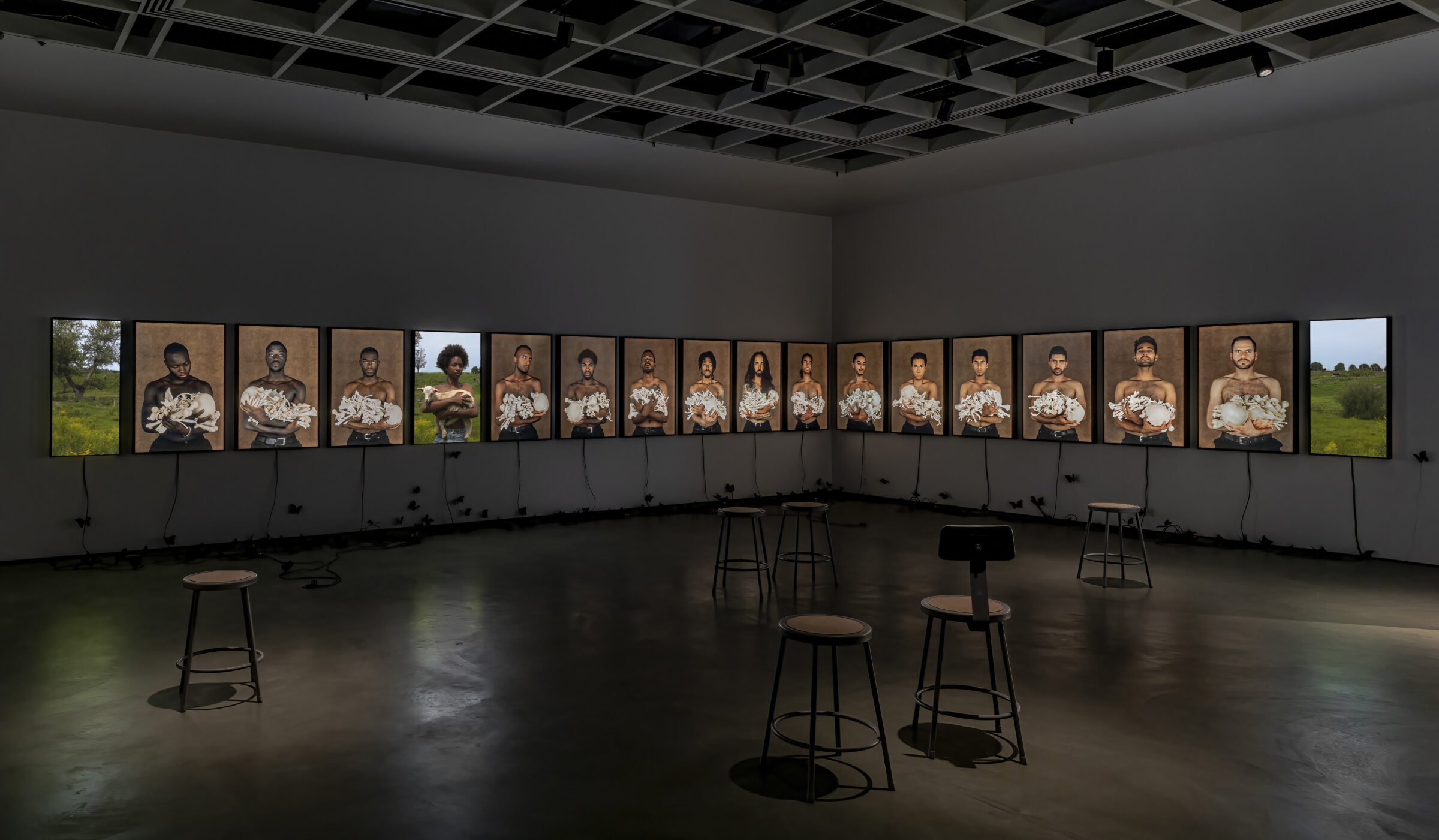

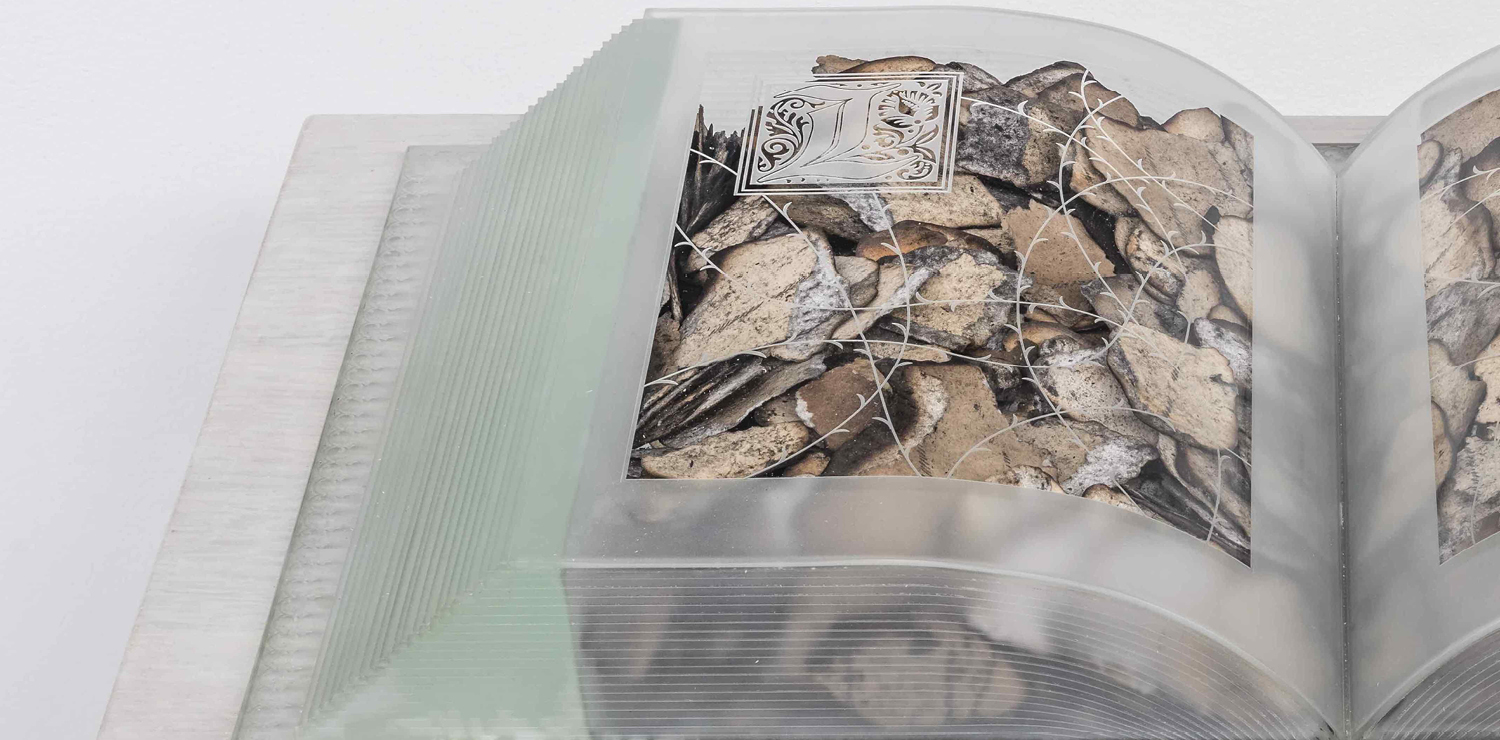

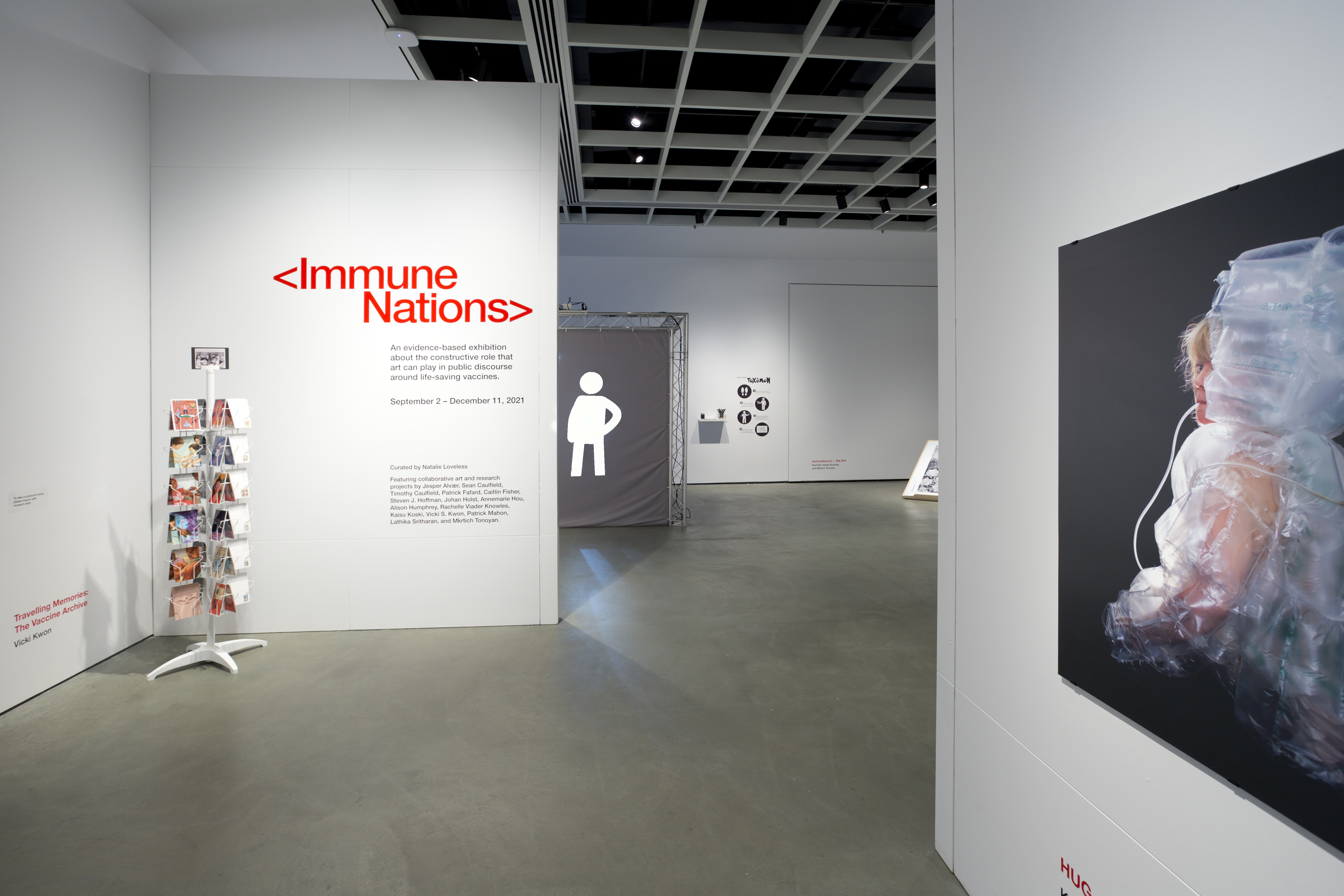
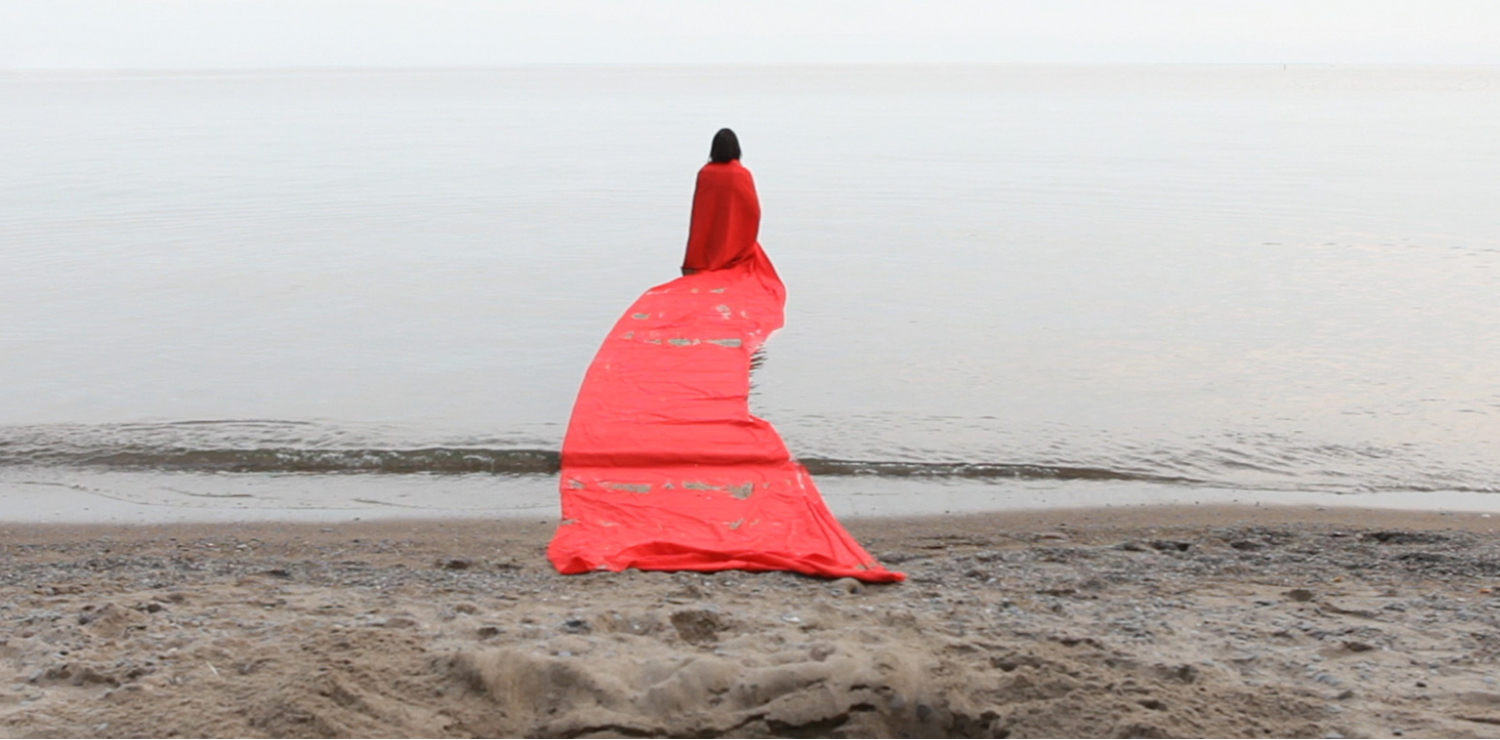
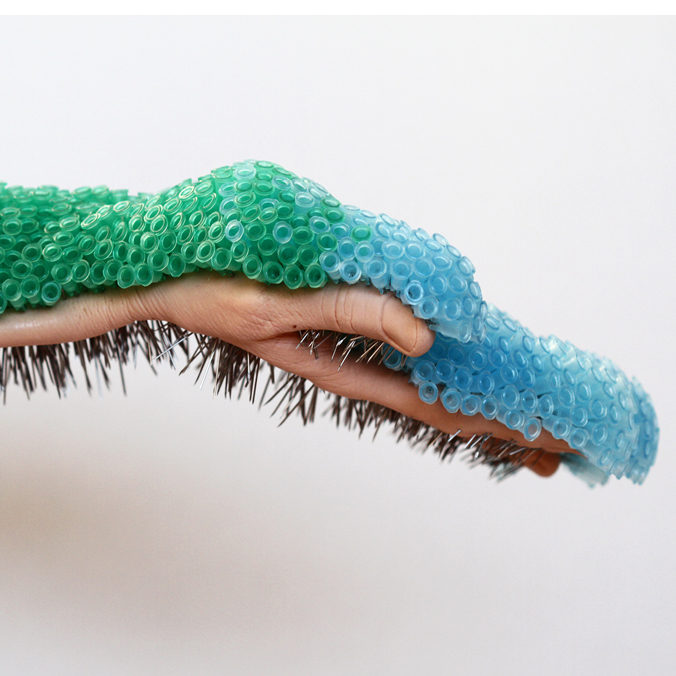
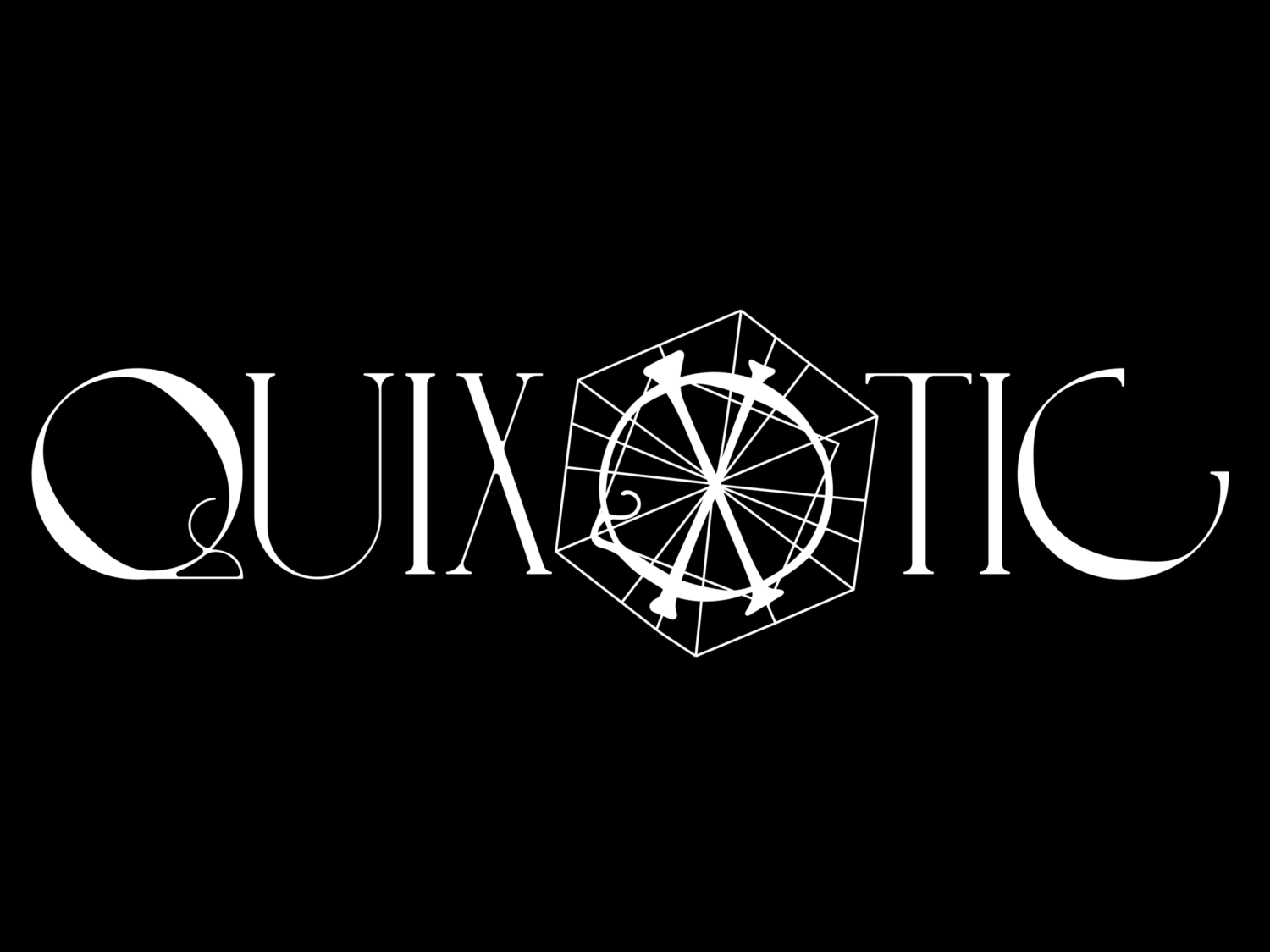
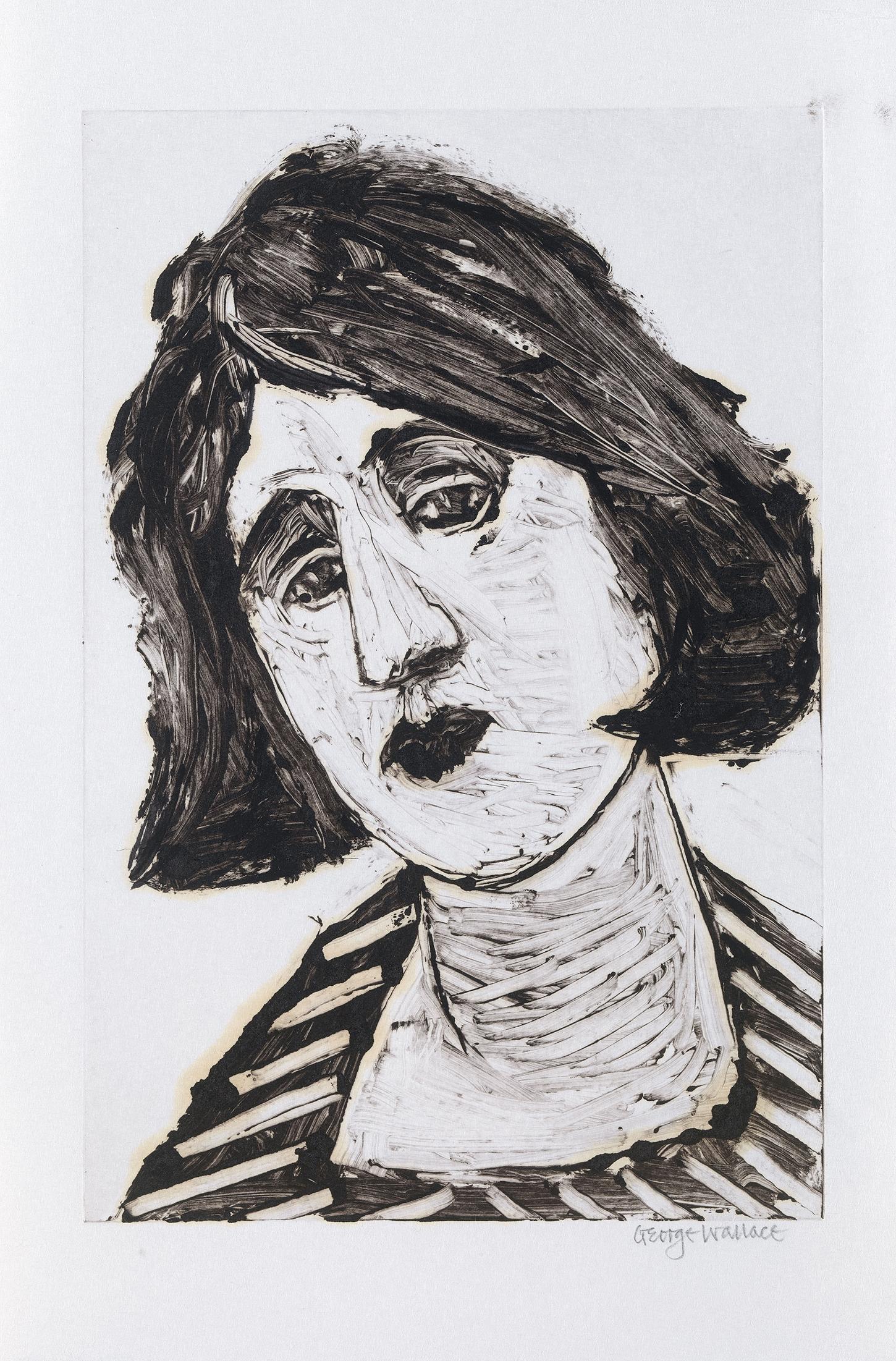
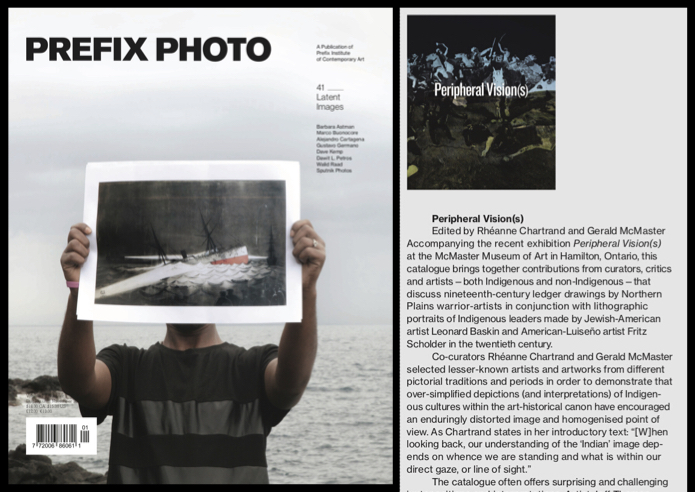
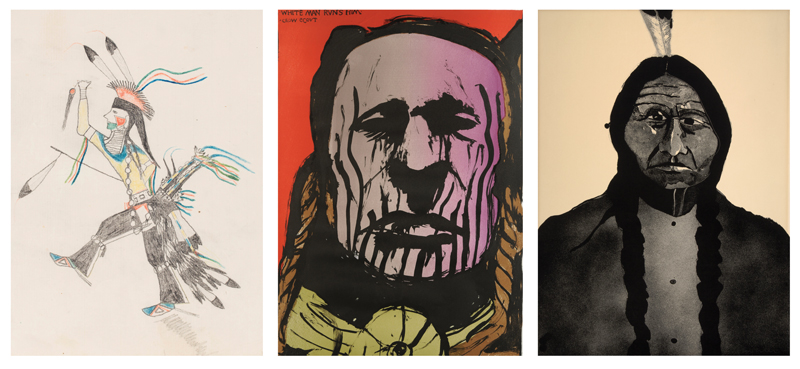
McMaster Museum of Art proudly presents
Curated by Rhéanne Chartrand and Gerald McMaster
Supported by the Terra Foundation for American Art
Opening Reception: Thursday September 12, 6 – 8 pm
On view until December 20, 2019
A new exhibition at McMaster Museum of Art sparks a visual dialogue between 19th century ledger drawings by Northern Plains warrior-artists and the lithographic prints of 20th century American artists Leonard Baskin and Fritz Scholder.
“Essentially, this exhibition [Peripheral Vision(s)] is a critical rethinking of the origins of the ‘Indian’ image, endeavoring to understand how artists have shaped – and been shaped by – this image,” says Rhéanne Chartrand, Curator of Indigenous Art at the museum of art and co-curator of this exhibition. “It invites visitors to consider how the lens of the present shapes our understanding of the past.”
The exhibition draws together nearly 50 works of art from institutions across North America.
Twenty-one ledger drawings record, in veracious detail, the first-hand experiences of four 19th century warriors-turned-artists. These include Short Bull / Tȟatȟáŋka Ptéčela (Sičháŋǧu Lakota, c. 1845–1923), Pretty Eagle / Déaxitchish (Apsáalooke, 1846–1903), White Swan / Mee-nah-tsee-us (Apsáalooke, 1851–1904), and Iron Cloud / Mahpiyamaza (Lakota, 1851–?).
Within the exhibition space, these ledger drawings are placed into conversation with twelve of the twenty-seven “Indian portraits,” in McMaster’s collection by Jewish-American artist, Leonard Baskin (1922-2000) and fourteen lithographs by Luiseño/American artist, Fritz Scholder (1937-2005), borrowed from five prominent US institutions.
Individually and collectively, the artists in this exhibition occupied the periphery of mainstream Euro-American society, history, art, and culture during their lifetimes. Though almost a century separates them, they are bound together by their common creative pursuit of reflecting on vision(s) of self, of Other, of place, and on particular moments and events in ways that do not conform to, or uphold, the accepted “truths” of history.
“Together these artworks generate a new critical analysis of history, the politics of representation, image-making, and the overall intent of portraiture,” says Chartrand.
Peripheral Vision(s) is an exhibition that refutes the well-known adage “history is written by the victors,” encouraging visitors to activate their peripheral vision—largest portion of our visual field—in order to see objects, ideas, truths, gestures, and movement outside of their direct line of sight, or histories not at the centre of the dominant worldview.
OPENING RECEPTION: Thursday, September 12, 6 – 8 pm
CURATOR’S TOUR by Rhéanne Chartrand: Wednesday, September 25, 12:30 – 1:20 pm
CONCERT | Night of Indigenous Music: Thursday, September 26, 7 – 9 pm
Cris Derksen
A rising star on the Canadian world / classical / folk / electronica scenes, award-winning Indigenous cellist Cris Derksen is known for building layers of sound into captivating performances. Her music braids the traditional and contemporary in multiple dimensions, weaving her traditional classical training and her Indigenous ancestry with new school electronics, creating genre defying music.
nêhiyawak
nêhiyawak hails from amiskwaciy in Treaty 6 Territory. The trio of Indigenous Canadian artists – Kris Harper (vocals, guitars), Marek Tyler (drums), and Matthew Cardinal (synths, bass) – transcends a new intersection of contemporary sound and the traditional storytelling of their ancestry. Their music is a resonant expression of indigeneity in the modern world.
Wednesday, November 20, 6 – 9 pm
– Janet Berlo, professor of art/art history and visual culture, University of Rochester
– Gerald McMaster, curator, artist, author, and Tier 1 Canada Research Chair of Indigenous visual culture and curatorial practice, OCADU
– Jeffrey Thomas, artist and recipient of the 2019 Governor General Award for the Visual & Media Arts
– Rhéanne Chartrand, curator of Indigenous art, McMaster Museum of Art*All events are free and open to the public.
The exhibition will be accompanied by a significant publication exploring the “Indian” image with scholarly essays by some of the most prominent Indigenous and non-Indigenous voices within the fields of Indigenous art history and art criticism today:
Harwood Museum of Art at the University of New Mexico (Taos, NM)
IAIA Museum of Contemporary Native Arts (Santa Fe, NM)
Minneapolis Museum of Art (Minneapolis, MN)
Tucson Museum of Art (Tucson, AZ).
the Hood Museum of Art at Dartmouth College (Hanover, NH)
the Royal Ontario Museum (Toronto, ON)
Simcoe County Museum (Minesing, ON)
For more information about the exhibition, please contact:
Rhéanne Chartrand, Curator of Indigenous Art, McMaster Museum of Art
905-525-9140 ext. 27573 chartrr@mcmaster.ca
![]()
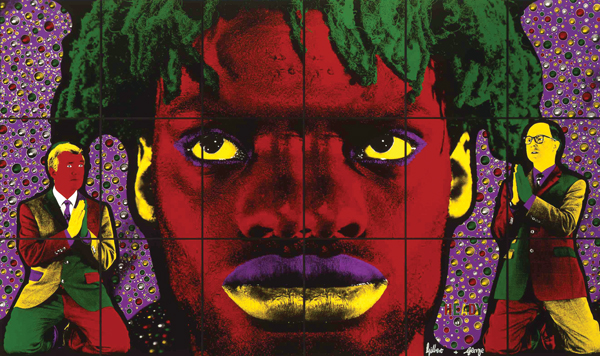
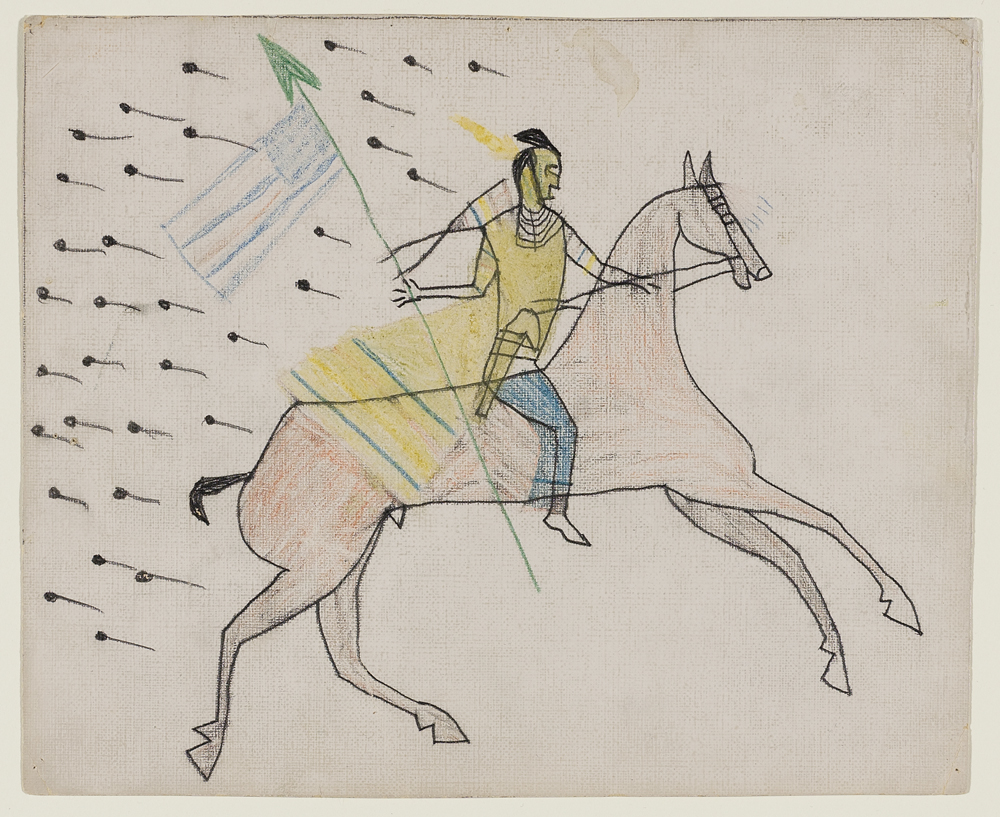
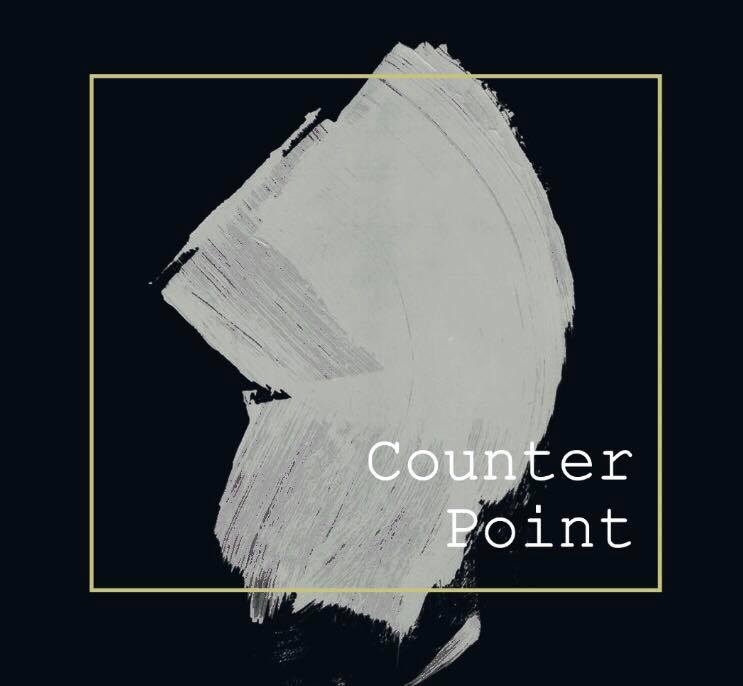
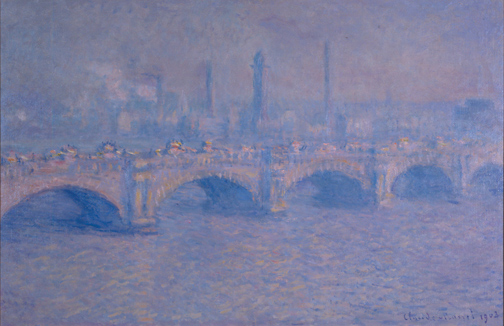
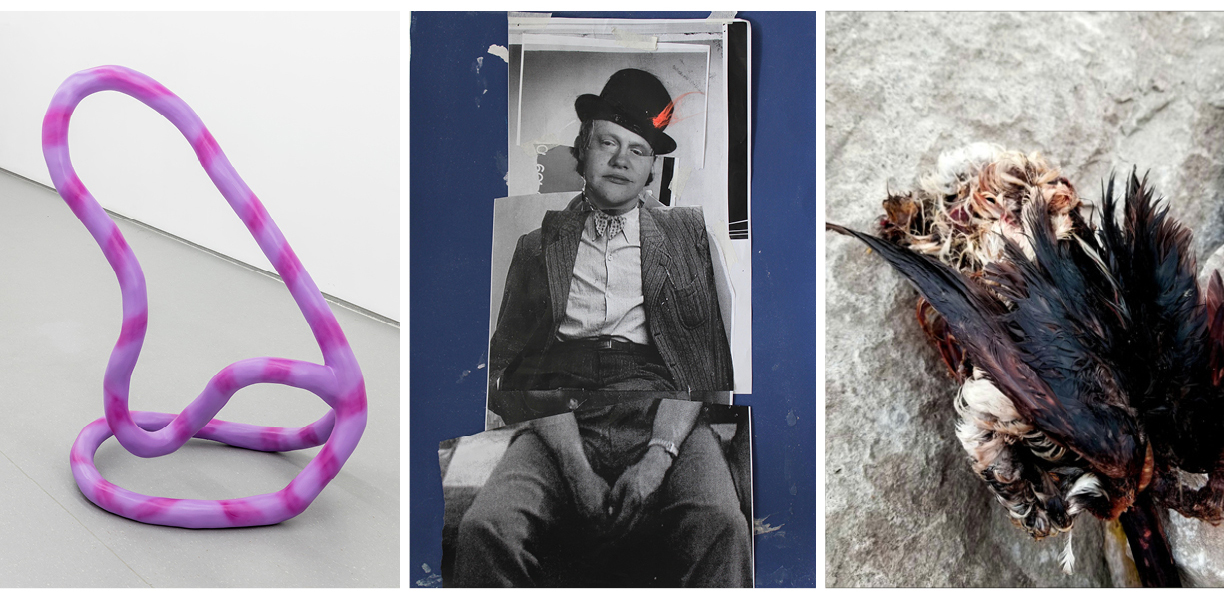
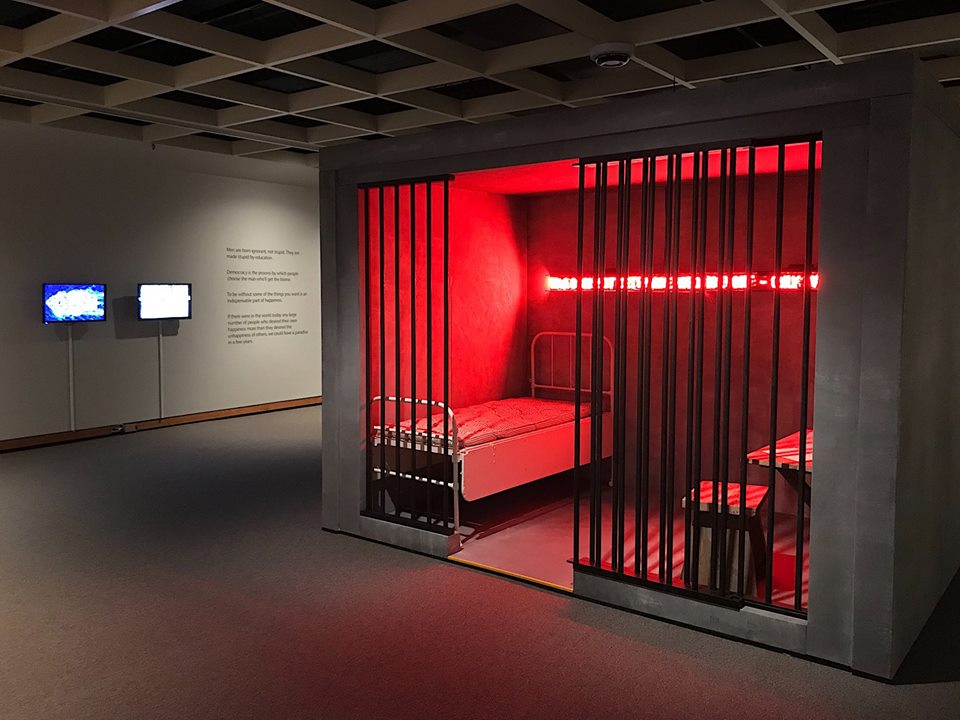
McMaster Museum of Art presents:
In conjunction with the Undying Hope for this Dangerous World exhibition, celebrating the 50th anniversary of the Bertrand Russell archives at McMaster University, the Museum of Art invited Nova Scotia College of Art and Design University professor Bruce Barber to develop an artist project. Barber’s project launches at the Museum in September with a special event and an exhibition environment – complete with recreated version of Russell’s cell in Brixton Prison – highlighting the life, work, and continued relevance of the renowned British philosopher and mathematician.
EVENT | September 18 from 12:30 – 1:20 pm
Bruce Barber, Artist and Professor in conversation with McMaster University faculty:
Virginia Aksan, Professor Emeritus, Department of History
James Ingram, Professor, Department of Political Science
Neil McLaughlin, Professor, Department of Sociology
They will speak about key themes relating to the exhibition including, but not limited to:
Free and Open to the Public.
Event will be held in the McMaster Museum of Art’s 4th Floor Tomlinson Gallery, in the Bruce Barber installation
Museum’s front desk are happy to provide elevator access.
Seating is limited and is available first-come-first-served

EXHIBITION | September 13 – December 21, 2018
In his concept proposal, Bruce Barber noted another Russell anniversary in 2018:
Russell spent six months in Brixton Prison in 1918 for prejudicing “His Majesty’s relationship with the U.S.A” and where he wrote his Introduction to Mathematical Philosophy. 2018 coincidentally marks the centenary of the end of the First World War that will be probably reduced to jingoistic celebrations of militarism that would have been abhorred by the philosopher who spent much of his life protesting war.
For the Museum, Barber has devised a reading room environment. The key gallery element is a constructed simulacrum of the Brixton prison cell, furnished with a bed, writing desk, stool and a quote from Russell, realized in neon: “War does not determine who is right – only who is left.” Other Russell quotes will be positioned on the perimeter walls of the gallery space, with two Barber-produced videos relating to Russell, his life and times, and images of the present to raise awareness of Russell’s life and work and continuing relevance in today’s world; the complex ethical issues that surround forms of oppression, terrorism and “war responses” affecting the lives of people globally.
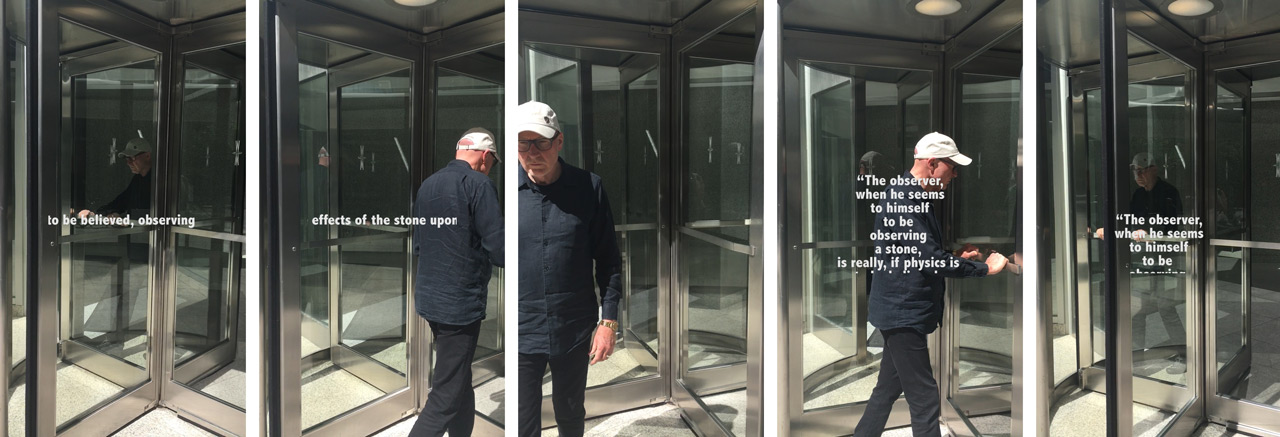
Bruce Barber was born in New Zealand and has worked internationally across performance, installation, film, video and photography since the early 1970s. His artwork has been exhibited internationally at the Paris Biennale, Sydney Biennale, 49th Parallel Gallery NYC, the New Museum of Contemporary Art, NYC, Walter Phillips Gallery, London Regional Gallery, Auckland City Art Gallery, Artspace, Sydney, Auckland, London, Paris and Venice (2015, 2017), and is represented in various public and private collections. Barber is the editor of Essays on Performance and Cultural Politicization and of Conceptual Art: the NSCAD Connection 1967-1973. He is co-editor, with Serge Guilbaut & John O’Brian of Voices of Fire: Art Rage, Power and the State. Editor of Condé +Beveridge: Class Works (2008); also author of Performance [Performance] and Performers: Essays and Conversations (2 volumes) (2008); and Trans/Actions: Art, Film and Death (2008); Littoral Art & Communicative Action edited by Marc James Léger (2013). His critical essays have appeared internationally in numerous anthologies, art journals and magazines. Barber’s interdisciplinary art practice is also documented in the publications Reading Rooms (1990) and Bruce Barber Work 1970-2008 (2009).
www.brucebarber.ca
Curators Stephan Cleland and Blair French summarized Barber’s work as “developing propositional and situational works that engage and question social and political regimes of power.”
(From Bruce Barber Work 1970-2008, Artspace, Sydney and Te Tuhi Centre for the Arts, Manukau)
